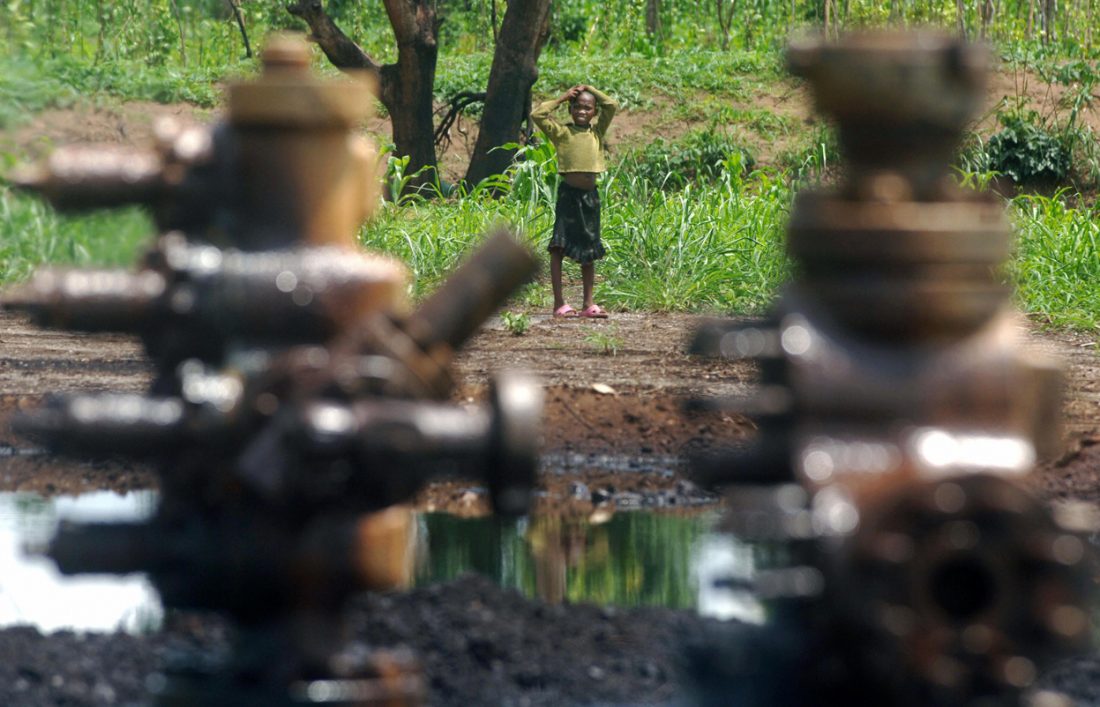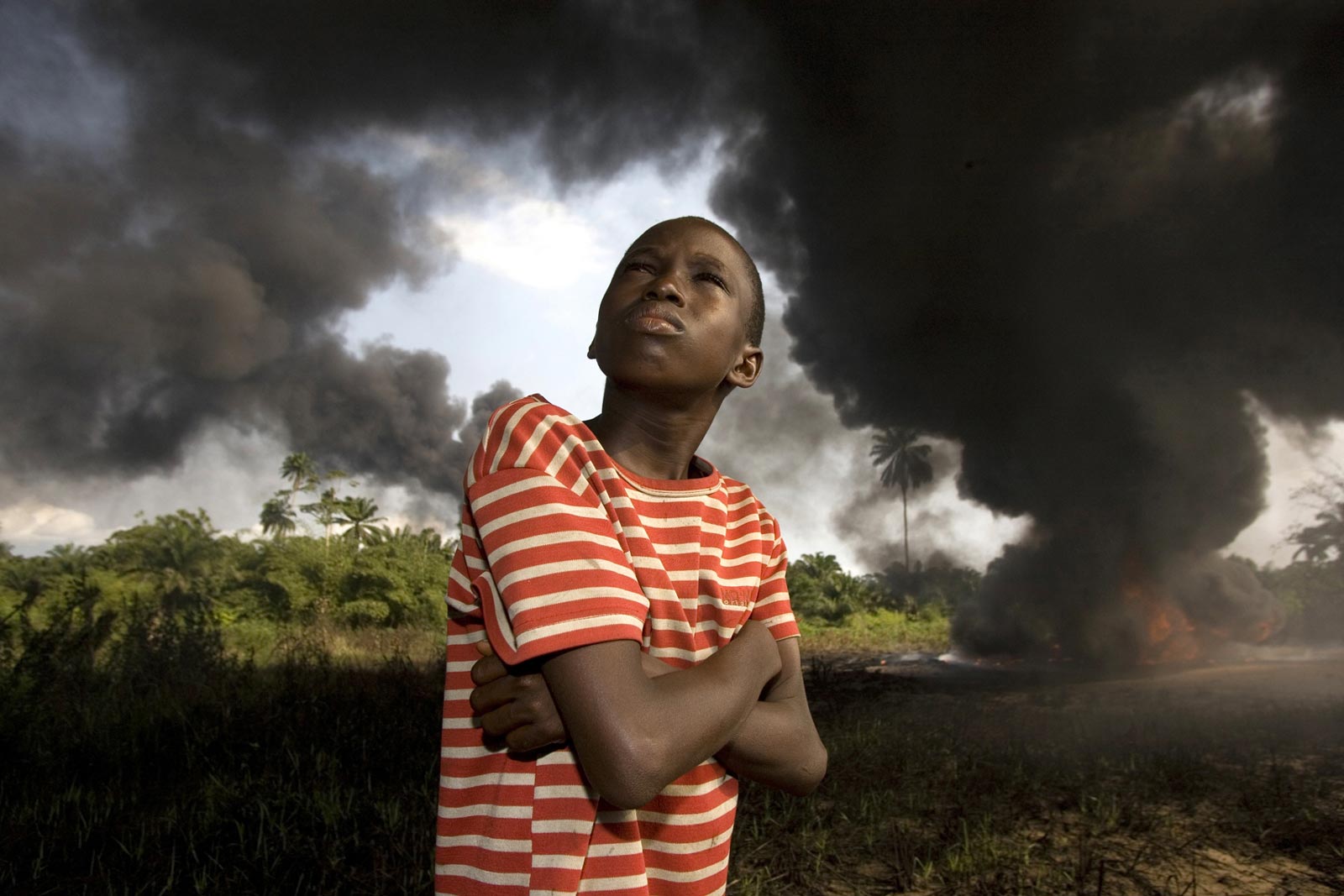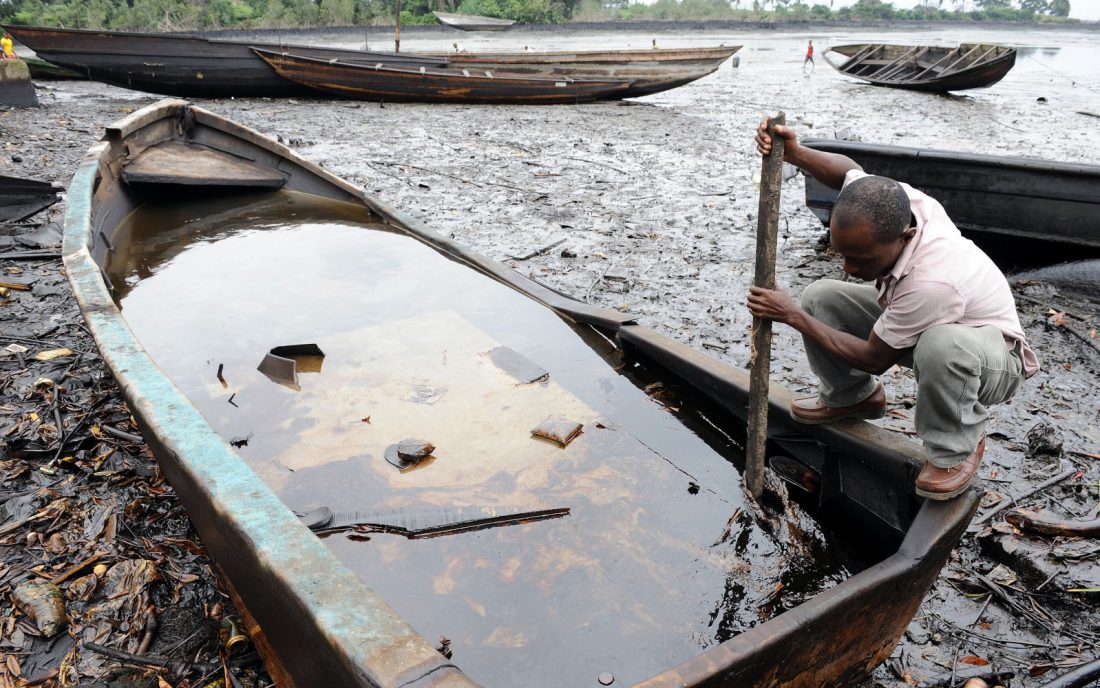[dropcap]T[/dropcap]he Niger Delta, an oil-rich region, paradoxically, is ingloriously described as the oil pollution capital of the world. The region produces Nigeria’s crude oil, about two million barrels per day in 2019, supplies 95 per cent of Nigeria’s export earnings and 80 per cent of Federal Government revenue, but, ironically, more than 50 per cent of its youths are believed to be unemployed or underemployed.
“Where Vultures Feast,” a 2011 epic book co-written by 1998 Association of Nigerian Authors prize winner, Ike Okonta, and the late environmental rights activist and presidential aide, Oronto Douglas, painted a horrid picture of the Niger Delta, where the activities of multinational oil corporations have created an endangered environment. Vultures are still feasting the Niger Delta, leaving behind, in the words of the Afrobeat legend, Fela Anikulapo-Kuti, “sorrows, tears, and blood.”
The Niger Delta occupies about 70,000 sq km of the landmass of Nigeria, or about 7.5 per cent of Nigeria’s total land mass, is inhabited by about 25 million people in nine oil-producing states, six states in the South South geopolitical zone, Akwa Ibom, Rivers, Delta, Bayelsa, Cross River and Edo, one from South West (Ondo) and two from the South East (Abia and Imo). The nine states have 185 local government areas. The indigenous people are from roughly 40 ethnic groups, including Bini, Efik, Esan, Ibibio, Igbo, Annang, Yoruba, Oron, Ijaw, Ikwerre, Abua/Odual, Itsekiri, Isoko, Urhobo, Ukwuani, Kalabari, Okrika, Ogoni and Obolo people, and speak an estimated 250 dialects.
Crude oil was first discovered in commercial quantities at Oloibiri in the Niger Delta region in 1956, bringing a blessing and a curse over the years. Nigeria has derived a blessing from oil revenues, though the sharing of the national cake between oil-producing and non-oil-producing states, the elite and the lower class, and the governing class and others has been contentious. A privileged few have helped themselves to sleazy portions from public offices, to the detriment of the common majority.
Oil has also brought a curse, as over 13 million barrels (1.5 million tons) of crude oil has been spilled on surface water, groundwater, land and air environment from terminals, pipelines, and oil platforms. Specifically, a study conducted by Woodrow Wilson International Center for Scholars in 2011 shows an estimated 546 million gallons were spilled in Nigeria’s 159 oil fields (78 of which are in the Niger Basin) between 1958 and 2010. This averaged 300 spills or nearly 10.8 million gallons per year. The study also shows 50,000 acres of mangrove forest disappeared between 1986 and 2003, and 32 per cent of associated gas flared (127 bcf) in the first quarter of 2010 alone.

The major oil spill incidents include the FUNIWA-5 oil blowout in 1980 that released 54,000 tonnes of crude oil into the mangroves; Mobil raptured pipe that released 14,300 tonnes of crude oil in 1998; a spill from a Shell pumping station in Warri that released 2,900 tonnes of crude oil in 1998; Shell OML 118 Bonga deep offshore oil spill of December 20, 2011, that spilled over 40,000 barrels to over 20 riverine communities across Akwa Ibom, Bayelsa and Delta states. The spill occurred when the company’s export line linking their float production storage and offloading, FPSO, vessel supplying crude oil to a tanker MV Northia, spewed about 40,000 barrels (6.4 million litres) of crude oil into the sea.
The spills continue unabated. Nigeria Oil Spill Detection and Response Agency, NOSDRA, through its Oilmonitor.org, reports that, in 2019, for instance, there were 597 oil spill incidents in the Niger Delta region, with 35,816.42 barrels of oil reported spilled from the activities of oil companies like Shell (Shell Petroleum Development Company Nigeria Ltd); Chevron (Chevron Nigeria Ltd.); ExxonMobil (Mobil Producing Unlimited); Eni (Nigerian Agip Oil Company); and Total/Elf (Total E&P Nigeria Limited, formerly EPNL)
The two topmost culprits in 2019 were with Nigerian Agip Oil Company, NAOC, with 193 spills, involving 5,391.92 barrels, and SPDC, with 197 spills, 12,078.42 barrels of oil. The cause of the 2019 oil spills, according to Oilmonitor.org, include corrosion, equipment failure, operation and maintenance error, alleged oil exploitation activities, catchment basin overflow due to 2019 flood, sabotage, and unknown causes.
These oil spills affected over 1,500 communities, causing reduction in soil fertility, loss of economic trees and food crops, reduced yield and quality of agricultural products, prevalence of childhood malnutrition, bioaccumulation (increased concentration) like lead and cadmium in vegetables and fisheries, massive water contamination with hydrocarbons and trace metals, cancer, and several acute and long-term effects on public health.

A landmark report by the United Nations Environment Programme, UNEP, “Environmental Assessment of Ogoniland, 2011,” found serious cases of groundwater contamination, including alarming proportion in Nisisioken Ogale, in Eleme LGA, where an 8cm layer of refined oil was observed floating on the groundwater; denudation of mangroves, highest in Bodo West, Bonny LGA, where a 10 per cent loss of healthy mangrove cover was recorded; and drinking water contamination, a case study was recorded in Nisisioken Ogale, where benzene, a known carcinogen, at levels 900 times above the World Health Organization limit was recorded. The report estimated a successful cleanup of the Niger Delta region would cost $1 billion and take 30 years to complete.
The environmental degradation of the Niger Delta gave rise to insurgency and armed opposition. This was kicked off by Isaac Boro’s Niger Delta Volunteer Force, which declared independence of the Niger Delta’s People’s Republic and called for oil companies to negotiate with his government, instead of the federal authorities, in 1966. His 12-day revolt was, however, successfully put down by Federal forces. The fight for the restoration of the Niger Delta has also claimed lives notably that of Ken Saro-Wiwa, a Nigerian writer and activist leader of Movement for the Survival of the Ogoni People, MOSOP, executed by the Gen. Sani Abacha military regime in Nigeria in 1995.
There are many other armed groups such as Movement for the Emancipation of the Niger Delta, Niger Delta People’s Volunteer Force, Niger Delta Liberation Front, Niger Delta Avengers, Red Egbesu Water Lions, Asawana Deadly Force of the Niger Delta, the Adaka Boro Marine Commandos, Utorogon Liberation Movement, Joint Niger Delta Liberation Force, Joint Revolutionary Council of the Joint Niger Delta Liberation Force, Red Scorpion, the Ultimate Warriors of the Niger Delta, the Niger Delta Red Squad, Niger Delta Vigilante, and the Niger Delta Greenland Justice Mandate.
In October 2009 more than 20,000 ex-combatants from these groups accepted presidential amnesty and laid down arms under a programme introduced by the Umaru Yar’Adua/Goodluck Jonathan administration.
What is the way forward in achieving ecological restoration of the Niger Delta? The Federal Government should declare ecological emergency in the oil-rich region and take immediate steps towards its environmental remediation and livelihood restoration. Government should exert pressure on oil firms to maintain the highest possible environmental safeguards, and pay imposed fines as required by the Polluter Pay Principle.
Specifically, government should ensure Shell pays the $3.6 billion imposed on it by the National Oil Spills Detection and Response Agency, NOSDRA, and upheld by a Lagos Federal High Court for the 2011 Bonga deep offshore spill of 40,000 litres of crude oil into the Atlantic Ocean. Its judicious disbursement will no doubt mitigate environmental impacts in the affected communities.
Environmental groups should draw international attention to the ecological genocide in the Niger Delta to enable it attract the same visibility as the Gulf of Mexico.
Government needs to strongly regulate the oil giants to ensure environmental remediation of the Niger Delta’s degraded space and reduce its abuse and rape. Fortunately, there is a light at the end of the tunnel that should empower national authorities to act swiftly and decisively. In June 2014, the Human Rights Council adopted resolution 26/9, a legally binding instrument that established an intergovernmental working group that would create an instrument for regulating transnational corporations with regard to human rights, and its details are still being discussed.
It is commendable that the Federal Government of Nigeria launched the $1 billion Ogoni cleanup exercise on June 2016 and the Hydrocarbon Pollution and Remediation Projec, (HYPREP, was inaugurated two months later. Critics, however, argue this is coming too late and too little, a matter made worse by the perceived slow motion of the HYPREP. What the UNEP report recommended was the institution of an Ogoni Restoration Authority, ORA, though government is not bound to accept its recommendations in every material particular.
Be that as it may, the 2011 UNEP report needs to be revisited and implemented holistically, rather than its present piecemeal implementation. The report contained emergency measures, operational recommendations, technical recommendations for environmental restoration, recommendations for public health, recommendations for governments, regulators, monitoring, and for operators of the oil industry, most of which are still largely unimplemented. The report also needs to be updated to reflect current realities in the Niger Delta basin.
As the report noted: “Restoring the livelihoods and wellbeing of future Ogoni generations is within reach but timing is crucial. Given the dynamic nature of oil pollution and the extent of contamination revealed in UNEP’s study, failure to begin addressing urgent public health concerns and commencing a cleanup will only exacerbate and unnecessarily prolong the Ogoni people’s suffering.”
Nigeria has missed nine years to act and clean up the Niger Delta. Now is the time to act, further delay will be costly.
Babatope Babalobi, is a doctorate researcher, Department of Health, University of Bath, UK, he could be reach via Email Here.
The opinions expressed in this article are solely those of the author.







